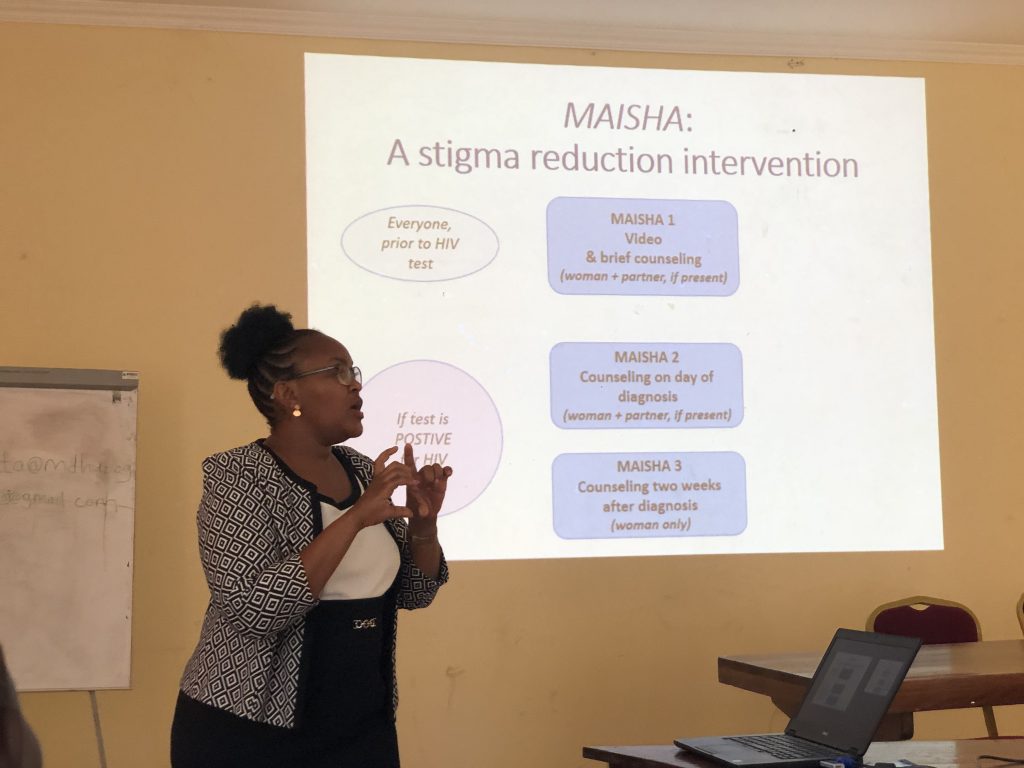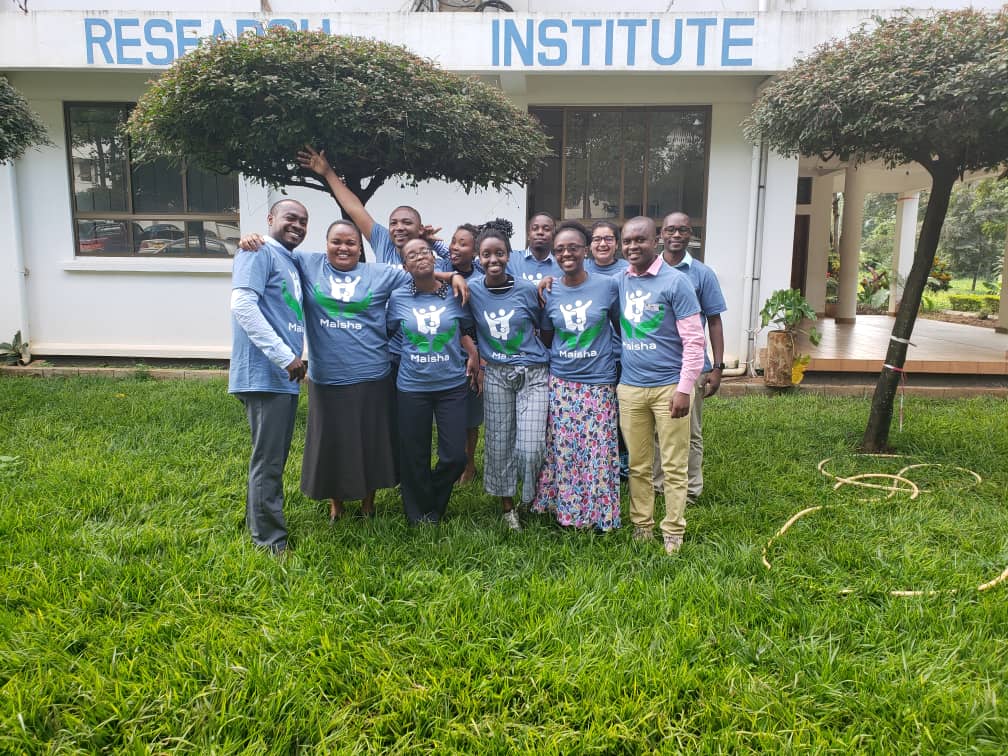From December 3-5, researchers, policy makers, government officials, and stakeholders involved in HIV work met in Arusha, Tanzania to share and discuss strategies, guidelines, innovations, and research findings on HIV and AIDS. The goal of the meeting was to disseminate the health sector HIV and AIDS guidelines and strategies, to share innovations and research findings to inform the HIV and AIDS response, and to prepare regional action plans to address identified challenges. Over the course of the meeting, the Option B+ team had three presentations and participated in discussions to inform the National AIDS Control Program (NACP)s action plan for the Northern Zone of Tanzania.
On the first day of the meeting, Linda Minja and James Ngocho presented data on retention in HIV care under Option B+ across 39 clinics in the Kilimanjaro region. The analysis used medical record data obtained from the Tanzania National AIDS Control Database. Findings highlighted the high loss to follow-up during initiation of PMTCT care and during the postpartum period, with higher loss of newly diagnosed clients. Results pointed to the need for targeted interventions that recognize the vulnerability of newly diagnosed patients, and address both early and postpartum retention.
On the third day of the meeting, Dr. Melissa Watt, who was visiting from the U.S., presented results from the Option B+ cohort to continue the conversation about care retention among pregnant and postpartum women. After sharing findings about facility-level implementation of Option B+ guidelines, care engagement at six months, depression, HIV disclosure, and barriers to care, the presentation concluded with a discussion of next steps, leading into an introduction of the stigma-based counseling intervention. Dr. Jane Rogathi then presented an overview of the new R21 activities and goals. The presentations stimulated great conversation, ideas, and support from attendees.


